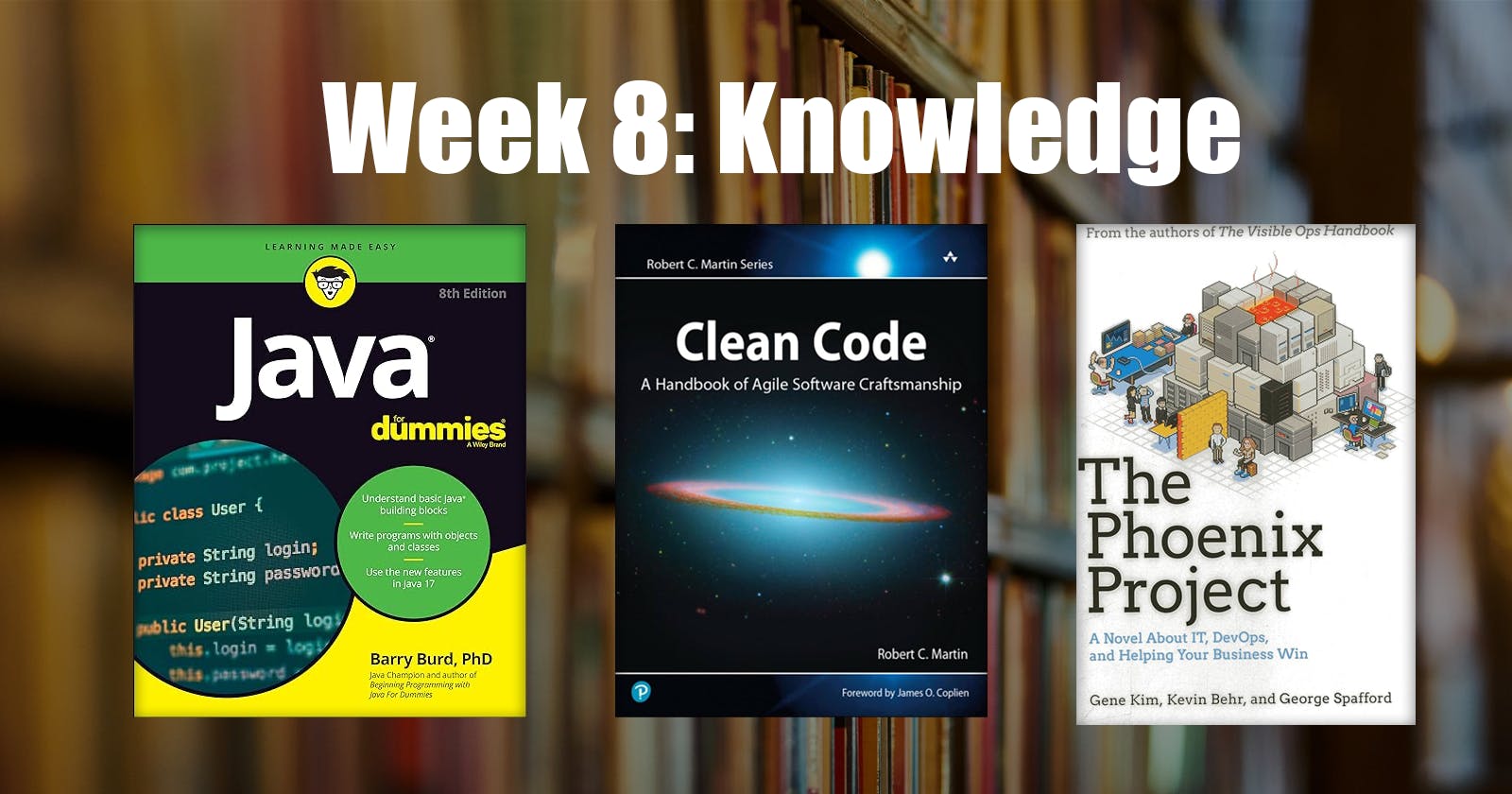Welcome back to Codebrew Time, where every coding journey is filled with learning and growth. This week, I have exciting book updates to share with you. From deep dives into code craftsmanship with "Clean Code" to life-changing lessons from "The Phoenix Project," and my ongoing exploration of "Java for Dummies, 8th Edition," let's talk about how these books have shaped my perspective on coding and the tech industry.
Halfway Through "Clean Code": Writing Better Code
Getting halfway through "Clean Code" has been a game-changer for my coding practices. Authored by Robert C. Martin, this book dives into the principles of writing clean, efficient, and maintainable code. As I progress through its chapters, I've learned the importance of keeping code simple, avoiding unnecessary complexity, and focusing on readability. These principles have not only improved my coding skills but have also made me more conscious of the impact clean code has on project collaboration and future maintenance.
Key takeaways from "Clean Code":
Simplicity and Readability: Keeping code as straightforward as possible without compromising functionality.
Naming Conventions: Using clear and descriptive names for variables and functions to enhance code readability.
Refactoring and Testing: Continuously improving code structure and ensuring its reliability through proper testing.
"The Phoenix Project": A Journey into DevOps and Life Values
Completing "The Phoenix Project" was a journey in itself. This book, written by Gene Kim, Kevin Behr, and George Spafford, is not just about technology; it's about the human side of IT and DevOps. Through the lens of a fictional company, it explores the chaos that can emerge in IT operations and how adopting DevOps practices can transform an organization.
Lessons learned from "The Phoenix Project":
DevOps Principles: Understanding the importance of collaboration between development and operations teams to improve efficiency and reduce downtime.
Life Values and Leadership: Learning the value of effective communication, teamwork, and leadership in overcoming challenges in both professional and personal life.
Continuous Improvement: Embracing a culture of continuous learning and adaptation to stay ahead in the ever-evolving tech landscape.
Starting "Java for Dummies": Preparing for a Summer Internship
With my summer internship approaching, I turned to "Java for Dummies, 8th Edition" by Barry Burd to brush up on my Java skills. Java is one of the most widely used programming languages in the industry, and having a solid understanding of it is crucial for my internship. This book provides a beginner-friendly introduction to Java, making it easy to grasp fundamental concepts while gradually exploring more advanced topics.
Why "Java for Dummies" is valuable:
Beginner-Friendly Approach: It breaks down complex concepts into easy-to-understand explanations, making it ideal for someone getting started with Java.
Real-World Examples: The book uses relatable examples to demonstrate Java's versatility and real-world applications.
Preparation for the Internship: As I read through the book, I'm gaining the foundational knowledge that will help me succeed during my internship.
Conclusion: The Power of Learning
Reading through these books has given me a new perspective on coding and technology. From mastering clean coding practices to understanding DevOps principles and preparing for a Java-focused internship, each book has contributed to my growth as a developer. As I continue to read and learn, I encourage you to explore books that align with your interests and career goals. They can be invaluable sources of inspiration and knowledge on your coding journey.
Thank you for joining me on Codebrew Time. Stay tuned for more updates, insights, and coding adventures. Don't forget to like, subscribe, and share your thoughts in the comments below. Let's keep exploring the world of coding, one book at a time. Happy reading!

